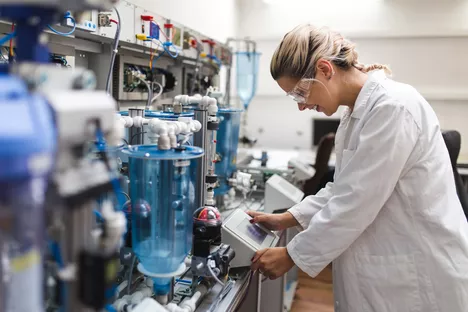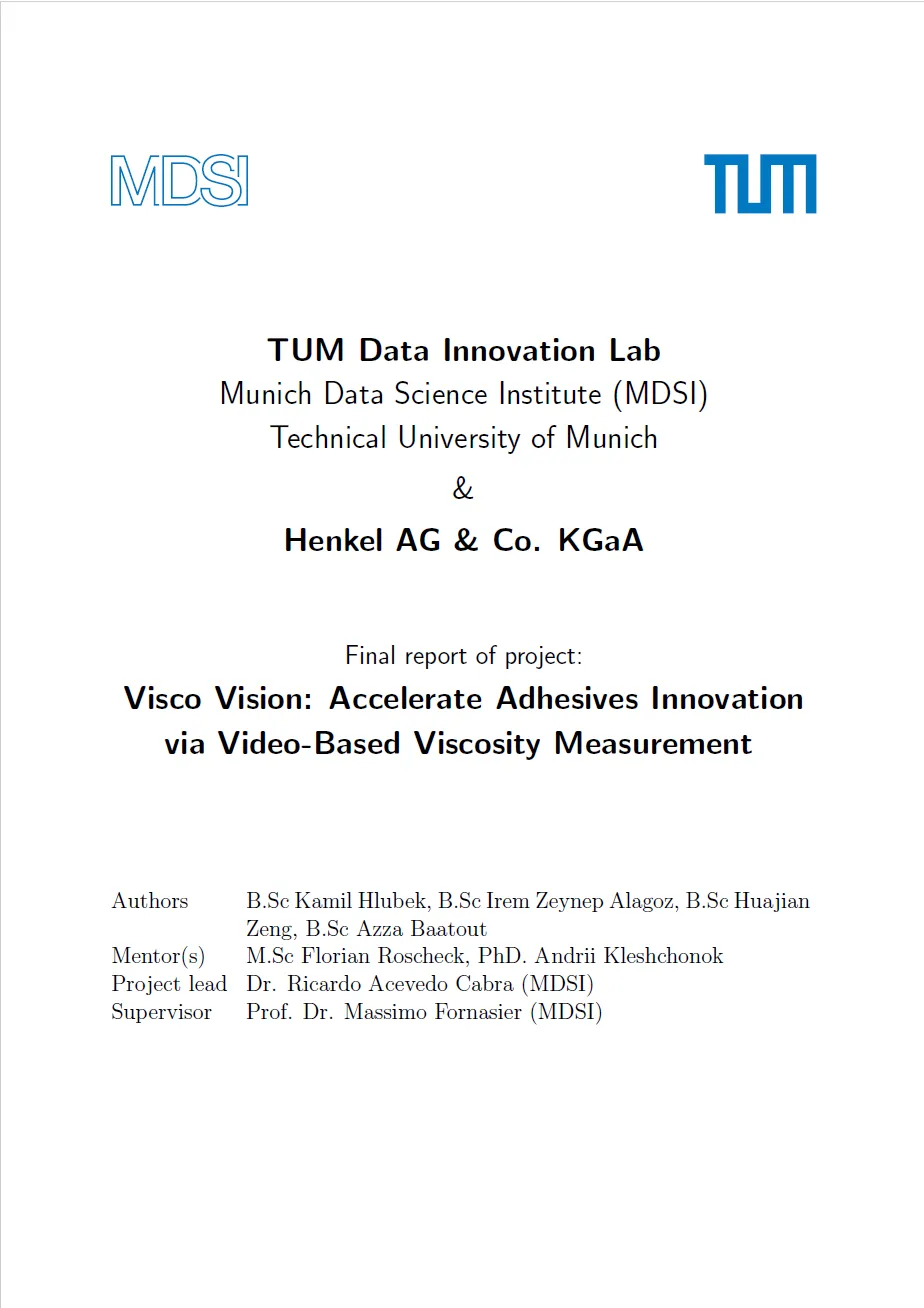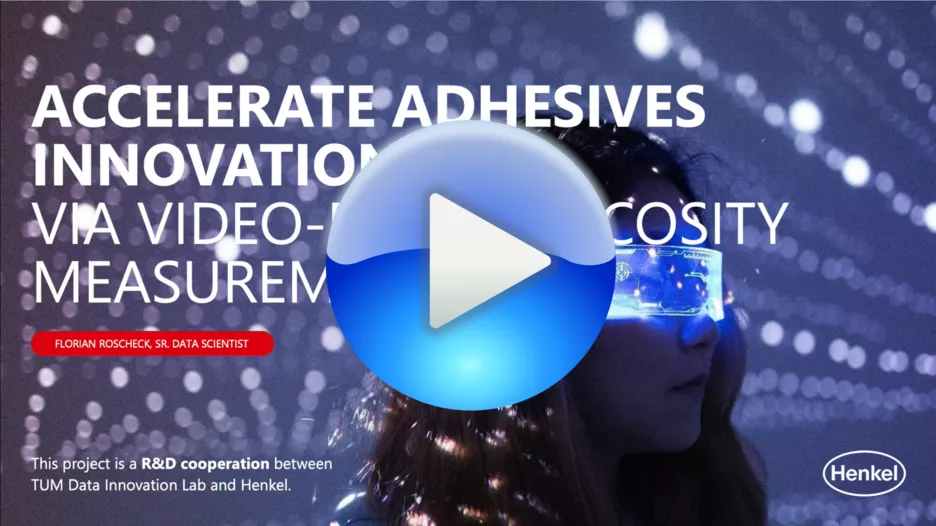Visco Vision – Accelerate Adhesives Innovation via Video-Based Viscosity Measurement
Results of this project are shown in the final report:
- Sponsored by: Henkel AG & Co. KGaA
- Project lead: Dr. Ricardo Acevedo Cabra
- Scientific lead: Florian Roscheck, Andrii Kleshchonok
- TUM co-mentor: Prof. Massimo Fornasier
- Term: Winter semester 2024
- Application deadline: Sunday 21.07.2024

Motivation
Henkel Adhesive Technologies is the world’s number one producer in adhesives, sealants and functional coatings. Our solutions can be found in many objects that are manufactured, which touch our lives every day: cars, books and magazines, computers, aircraft, refrigerators, cell phones, furniture, textiles, packaging, and many more.
In our innovative automated laboratory in Duesseldorf, Germany, we are currently operating a high-throughput formulation line to produce test samples of new, sustainable adhesives. However, one of the most important tests for such adhesives, viscosity testing, is currently performed manually in a time-consuming process. This is a significant bottleneck for the high-throughput experimentation we aim to achieve.
We have identified an opportunity to use video analysis for determining viscosity. We have set up a prototype video capture system in our automated lab and formed a cross-functional team consisting of chemistry, lab automation, and data science experts to acquire high-quality data so that it can be used in this TUM Data Innovation Lab project.
Goal
The goal of this project is to build a robust computer vision system which, based on videos of dispensing adhesives and recorded data of the dispensing process, such as dispensing pressure and adhesive cartridge geometry, can predict the viscosity of the adhesive. This fast, contactless measurement unlocks automated high-throughput experimentation. At the end of the project, the system should be sufficiently stable that it can be readily used in the laboratory.
Methods
With high-quality, structured data in place, project participants will develop a computer vision system based on optical flow or other time- and structure-dependent image analysis methods like mixed models of CNNs and RNNs for dynamic system understanding to predict viscosity of the adhesives. The system should be able to handle different types of adhesives, with different flow properties, adhesive colors and textures, for all of which data has been recorded.
The system is to be implemented on Azure DevOps and Azure Machine Learning, popular cloud environments Henkel uses for developing machine learning and software solutions. Along the development process, participants will learn about Agile ways of working.
Throughout the project, Henkel will provide an experienced data science mentor from its Data Science Center of Excellence. Students will continuously exchange with the experts who are responsible for implementing and using the developed system in the lab, enabling quick learning and value creation.
About the Data
The high-quality data is acquired in controlled environmental conditions (controlled lighting, fixed physical arrangement of cameras and dispensing adhesive, etc.). Per adhesive, there are 5 9-second color videos for repeatability with framerates at or above 50 FPS. We expect to test around 20 adhesives with differing viscosities. The total dataset will therefore consist of 200 videos, or about 90k individual images, environmental conditions, and ground truth viscosity data.
Requirements
It is desirable that participants have at least beginner level of the Python programming language. Ideally, participants have some experience with image or video analysis in Python, incl. knowledge of OpenCV. Experience in deep learning with frameworks like PyTorch is also very welcome. Previous experience with version control, data pipelines, cloud computing, or Agile methods of working is an advantage, especially if such has been gathered on the Azure cloud.
Apply to this project here

